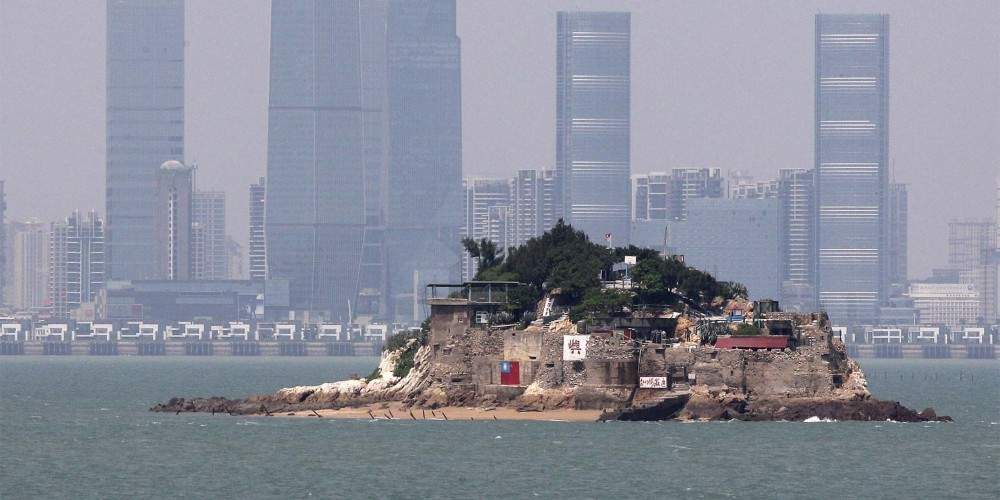Tensions that were already high between China and Taiwan rose yet again earlier this week following the downing of a drone sent by Beijing’s military into Taiwan’s territorial waters.
The incursion took place near an islet off China’s coast as the Taiwanese military fired upon the reportedly unarmed civilian drone, The Guardian reported.
- Gold SKYROCKETED during Trump’s first term and is poised to do it again. Find out how Genesis Precious Metals can help you secure your retirement with a proper self-directed IRA backed by physical precious metals.
“Beijing, which claims Taiwan as its own against the objections of the Taipei government, has held military exercises around the island since early last month in reaction to a visit to Taipei by the US House of Representatives speaker, Nancy Pelosi,” the outlet noted. “Taiwan’s government has said it will not provoke or escalate tensions but has been particularly angered recently by repeated cases of Chinese drones buzzing islands controlled by Taiwan close to China’s coast.”
The outlet went on to point out that the defence command for a group of Taiwan-controlled islands — Kinmen — that sit opposite of Chinese cities Xiamen and Quanzhou noted in a statement put out by the country’s defense ministry that the drone entered highly restricted airspace over Lion Islet shortly after noon local time on Tuesday.
Troops stationed there attempted to warn the drone off but it did not respond, so they were ordered to shoot it down. The remains of the drone landed in the ocean and, according to reports, likely not recovered.
It was the first time that Taiwan even fired warning shots at a drone. The shots came after Taiwanese President Tsai Ing-wen ordered her country’s military to initiate “strong countermeasures” against China’s provocative moves.
The Guardian noted further:
Speaking to the armed forces earlier on Thursday, Tsai said China was continuing to use drone intrusions and other “grey zone” tactics to try to intimidate Taiwan, her office cited her as saying in a statement.
Tsai again emphasized that Taiwan would not provoke disputes but that did not mean it would not take countermeasures, the statement added.
“She has also ordered the ministry of national defense to take necessary and strong countermeasures in a timely manner to defend national security,” it said.
Earlier Thursday, Lin Wen-Huang, deputy chief of the general staff for Taiwan’s armed forces, told reporters in a press briefing: “For aircraft and ships that entered our sea and air territory of 12 nautical miles, the national army will exercise its right to self-defense and counter-attack without exception.”
This is just the beginning of China’s escalation in ‘gray zone’ activity, which is defined as aggressive tactics short of outright kinetic warfare.
“This marks the first time shots have been fired during the current period of elevated tensions between China and Taiwan,” says an analysis by private intelligence firm Forward Observer regarding the incident. “China had previously dismissed Taiwan’s claims of harassment and provocations as ‘nothing to make a fuss about.’ Expect China to continue to escalate tensions with Taiwan by increasing the frequency and severity of its incursions into Taiwanese territory – potentially resulting in counter-attacks by Taiwan and leading to full-scale armed conflict.”
Meanwhile, the report noted in a separate item, Indonesia is also facing a territorial crisis in its exclusive economic zone (EEZ) in the North Natuna Sea from China, as that country falls victim to Beijing’s “Belt And Road Initiative,” which is just a debt trap.
“China has been conducting regular incursions into Indonesian waters that China says are its own under its 9 Dash Line territorial claim. Ruled invalid by the United Nations Convention on the Law of the Sea, the claim encompasses nearly 90% of the South China Sea. China has routinely conducted illegal fishing in Indonesia’s EEZ, patrolled the waters with its Coast Guard and maritime militia fleets, and even conducted seafloor mapping for future resource exploitation,” the report continued.
“The Indonesian government appears hesitant to confront these encroachments as its leadership and wealthy industrial class derive significant economic benefits from business with China,” it added.
China’s newfound aggression is directly linked to the fact that America now has a dementia patient as ‘president.’
Sources include:
“Beef Steak” – our most popular survival beef product – is on sale now.
Promo code “steak40” at checkout for 40% off!



